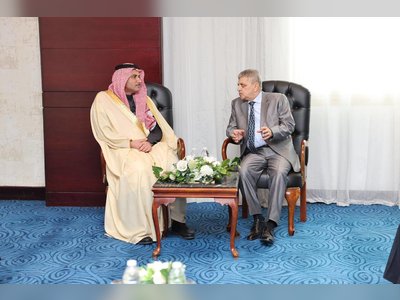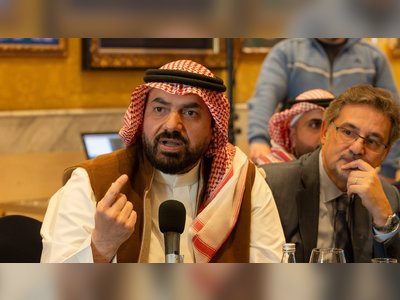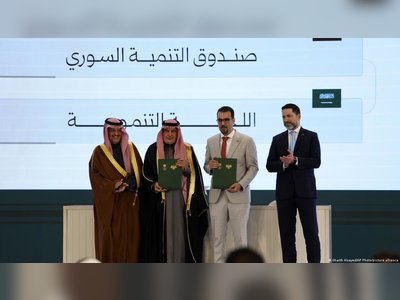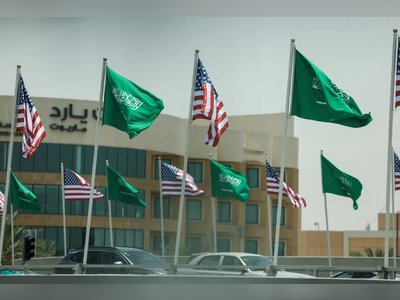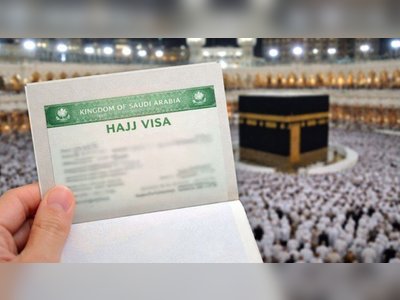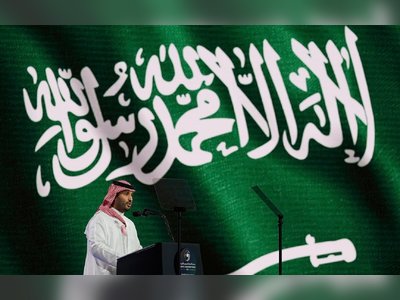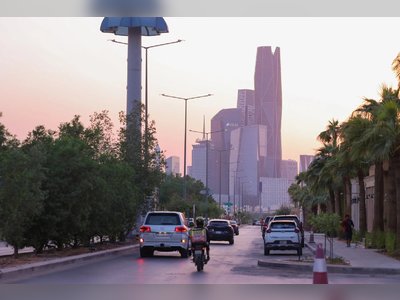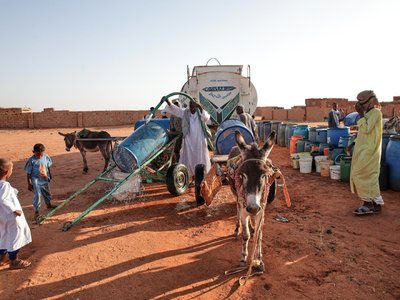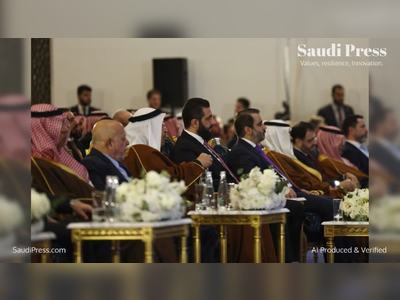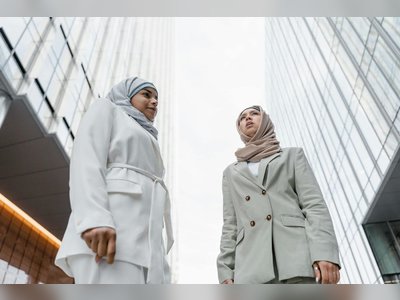
‘Beja Power!’: Music as resistance on Sudan’s Red Sea coast
As a young musician growing up in Port Sudan in the early 1990s, Noori Jaber fortuitously stumbled across the neck of a well-preserved guitar near a junkyard.
After being gifted a tambour – a four-stringed lyre also known as the krar – by his father, the 18-year-old Noori forged it with the salvaged guitar using his own welding and tuning techniques to craft an electrified tambo-guitar.
It was an instrumental hybridisation that would serve a greater purpose nearly three decades later, on Ostinato Records’ newly released album, Beja Power! Electric Soul & Brass from Sudan’s Red Sea Coast.
For Noori – who is from the Beja community, which primarily lives along eastern Sudan’s Red Sea coast – music expresses his long-marginalised people’s struggle to keep their culture alive.
Over six entrancing tracks, Noori and his Dorpa Band – which came together in 2016 – look to spread the Beja sound to a wider audience, in an album that the label claims is the first-ever international release of Beja music.
“They were waiting for an opportunity to put Beja music on the map,” Ostinato Records founder Vik Sohonie told Al Jazeera.
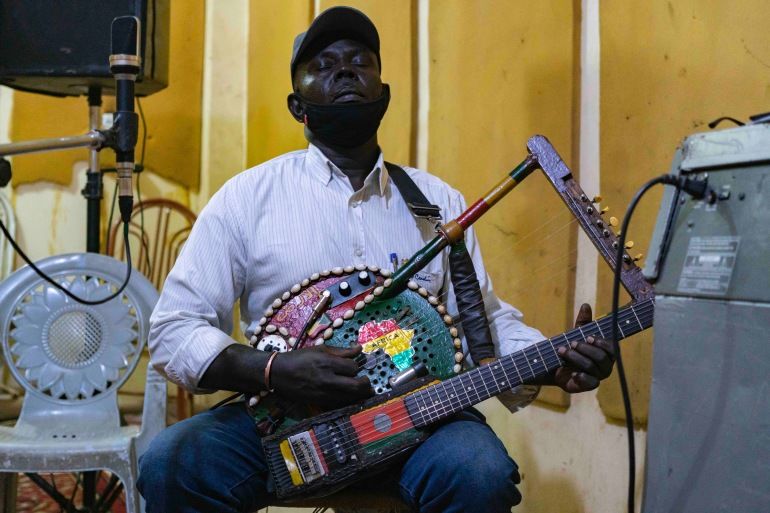 Noori playing his electrified tambo-guitar
Noori playing his electrified tambo-guitar
Possessing a lineage that traces back to ancient Egypt, the nomadic Beja people were depicted in hieroglyphics and were believed to be employed as archers during the ancient Nubian kingdom of Kush.
Throughout history, the Beja fiercely defended their homeland against cultural and economic exploitation from forces including Arabs and British colonialists.
Since the advent of the modern Sudanese state in 1956, the Beja have endured political and economic disenfranchisement despite their land being blessed (or cursed) with the country’s largest gold deposits, most of which have been sold off to foreign companies.
Sudan’s now-deposed autocrat Omar al-Bashir, who came to power following a military coup in 1989, waged an Arabisation campaign that sought to erase the Bejas’ culture and deny them their rights, criminalising attempts to speak their Cushitic language, write in their script or record their music.
For Noori, the album is an act of resistance in the face of erasure.
“Our language, Bidhaawyeet, has been challenged, our written script is dying, but the music survives and is the most common link between our past and present,” he told Al Jazeera.
 Noori customised his instrument from a tambour and the salvaged neck of a guitar
Noori customised his instrument from a tambour and the salvaged neck of a guitar‘Music that sounds ancient’
When Sohonie arrived in Sudan last November, right after a military coup upended a frail democratic transition, he noticed a “burst of creativity” around the country.
“It marked a creative shift after al-Bashir. Now, all these cultures from the east and southeast felt they could operate more safely and were empowered to make music,” Sohonie said.
While scrolling through local TikTok videos, he came across people largely strumming the oud and jamming at parties or weddings. But one video grabbed his attention: An unknown band playing what would later be the track Qwal on the album. Sohonie was instantly captivated by its deep, nostalgic melodies.
“It was familiar, but different,” he said. “It was like you were transported back thousands of years to the Pharaonic courts. It’s music that sounds ancient.”
Sohonie sent the video to a contact of his, Omer Alghali, a Khartoum-based event organiser, who identified the artist as Noori. Alghali then connected Sohonie to Noori and after an exchange of more videos, a meeting was planned and the seed to record an album was planted.
Due to ongoing political unrest, finding time to rehearse was not easy, with road closures and internet cuts. “The government would just need to shut down three bridges to cut off everyone from coming into the city,” Sohonie said. In the end, five days were booked in a Khartoum studio and the last day’s session was what made it on the album.
While Noori is Beja, the rest of his bandmates come from different parts of Sudan. During the recording sessions, Noori shared more on the history of Beja compositions with Sohonie.
“They’re doing a tweak here and there, but the foundation of these compositions was written thousands of years ago and passed down,” Sohonie said.
Sohonie described how Noori would go back to Port Sudan to learn new melodies from the “Beja masters” who carry the repository of the community’s history and knowledge, akin to the griots of West Africa who are entrusted with holding onto ancient tunes.
The album’s tracks showcase hypnotic grooves layered with airy saxophone and electric tambo-guitar-driven melodies, each of which ties into the story of the Beja. “These melodies are the centre of our story and contain our entire history,” Noori said.
The track Saagama represents the story of the Bejas’ millennia-long migration, Noori said. The song Jabana is about coffee, which reflects their culture of hospitality. Al Amal touches on hope, which they carry in the face of their tribulations.
From the sonic universe the album inhabits, one can tease out connections to not only Sudan but Eritrea, with even slight hints of guitar music from Niger. Some tracks share common ground with dhaanto, a Somali style of music that has similar rhythmic patterns to reggae. Meanwhile, hand-driven percussion and rhythm guitar provide a foundation for Noori’s tambo-guitar and his bandmate Naji’s tenor sax to intertwine and flourish.
This makes Beja music distinctive within the Sudanese canon. The Arabic music that dominates Sudan is pentatonic, while Beja is four scales. The other difference is the melodies.
“If you listen to the music of Khartoum, you’ll hear they are driven by deep violins, stringed melodies that are very nostalgic and super bluesy,” Sohonie explains, adding that while Beja rhythms are markedly Sudanese, they are distinctively slower and more groove laden.
Dexter Story, a Los Angeles-based musician and ethnomusicologist, said there is a great combination of harmony with melody, too. “It’s a wonderful revelation that it combines Arabic virtuosity with folk harmonies,” he told Al Jazeera.
While there is a repetitive, call-and-response element to much of northern Sudanese music, Beja music is progressive and mutable – a quality that Sohonie attributes to the sound emanating from the Red Sea region.
“If you go to Djibouti and listen to their music, it sounds more similar to Beja than Beja does to anywhere else in Sudan. That’s where the Red Sea comes in,” he said.
The sound of the Red Sea
Founded by Sohonie in 2016 to combine his love of storytelling and music, Ostinato Records has unearthed otherwise neglected sonic gems from the Horn of Africa for a global audience. In 2017 it released a Grammy-nominated compilation of 1970s-80s Somali music, and became the first imprint to release contemporary Djiboutian music in 2020.
When it comes to the music of the Red Sea, both Sohonie and Story highlighted how underexplored it is.
Story recalled that when he was in a café in Eritrea in 2019, he heard music that made him notice how the sounds of Somalia, Sudan and Eritrea converged. “There were similarities I was hearing. Distinctions too, but there was a thread running through them,” he said.
The Red Sea, he added, is a region teeming with movements and influences, marked by the footprints of merchants and colonial intruders alike. Migrations across the Indian Ocean, Arabian Peninsula, Egypt and the African interior all fostered a cosmopolitanism that resonated culturally.
Story went on to explain that, in the region, “we are talking about a music that is very mobile. You can carry the tambour and percussion instruments. You are able to string them on your back, throw them on a camel, or make them with the tools at your disposal”.
Speaking on Ostinato’s Beja release, Story believes it is the perfect intersection of tradition and modernity. “Listening to the album, you connect to something more ancient than anything you’ve heard before.”
And now, as Noori and his Dorpa Band hit the international airwaves, the world has access to their music.
“The preservation of Beja culture,” said Noori, “depends greatly on its ancient melodies being kept alive.”
